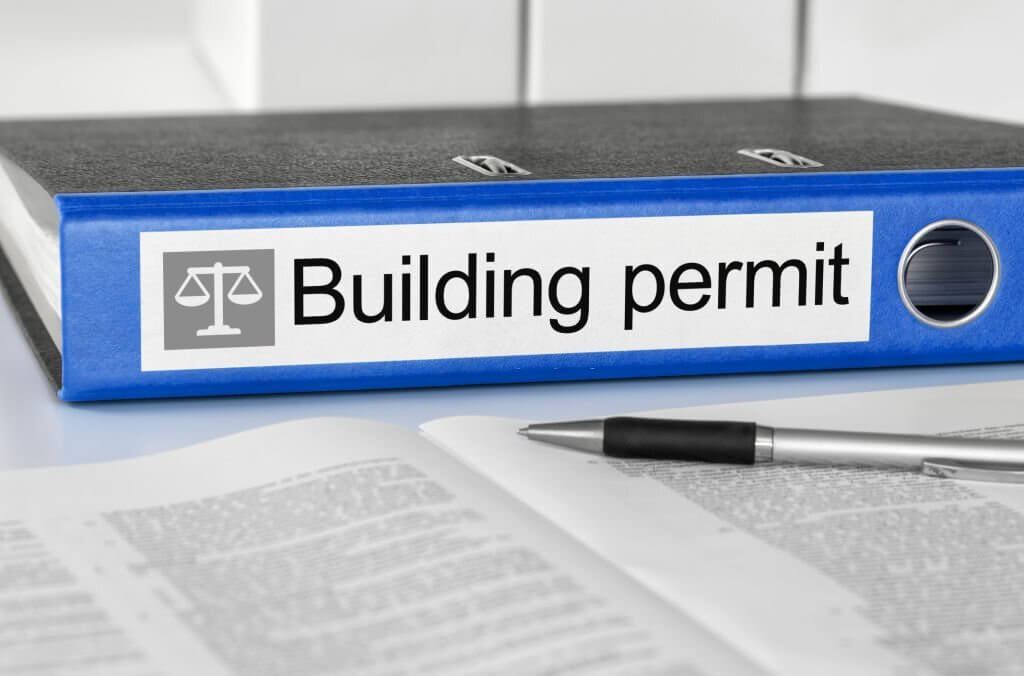Building Permits and Remodeling
You are surely aware as a wise homeowner that many outside house modifications and upgrades need official clearance. It might be challenging to determine whether you need a building permit for your home remodeling project. Since permitting offices sometimes frustrate homeowners’ attempts to sort out the laws.
Contractors, builders, and the trades make up an overwhelmingly big percentage of applications. Which is frequently a prejudice formed of necessity. Although state-by-state differences in building rules exist, renovation jobs involving modifications to the building’s existing plumbing, electricity, or footprint often call for a permit.
The National Association of the Remodeling Industry (NARI) is warning homeowners before starting on popular remodeling projects. They should be aware of the regulations governing construction permits. As the summer season is thought to be the busiest period for home remodeling work. Even if you simply want to follow a few simple kitchen remodeling tips or building design services, permits and the inspections that frequently follow assist guarantee that all remodeling and repairs work is carried out in a secure, sensible way.
What is Building Permit?
A building permit is a legal authorization to erect a new structure, extend an existing one, or modify one. Its goal is to make sure that the construction project complies with all applicable laws, including those governing land use, building standards, and environmental protection.
Typically, the local government or another regional regulatory agency issues you with a building permit. This might be the council of your city or town, or it could be a bigger local organization like the county government. Additionally, you should ascertain the type of permit your project requires. For instance, particular permissions can be required for electrical installation, zoning, or water lines, among other things.
When Need a Remodeling Permit?
Local governments grant permits under local laws. Building codes are different from city to city since there are no national or state norms. Minor renovations may not always require a construction permit. Simple tasks, like repairing your home’s front stairs, may frequently be completed without one. However, a permit is required for any project requiring substantial structural alterations to a building or the construction of new structures.
Before beginning any work, you should always get in touch with your local building office. Because the rules and regulations differ depending on where you are. You can only find out if your city needs a permit for remodeling work by visiting its website or giving them a call.
Although a qualified interior remodeling contractor should be able to tell you whether a permit is necessary. It is ultimately your obligation as the homeowner to make sure that all renovation is done legally. Don’t assume the building design services provider took care of the permits. It can take up to six weeks for the needed inspections to be completed. And some towns charge 1% of the total construction expenses to grant the permit.
What Happens If You Get Caught Remodeling Without a Permit?
Most house owners believe they may make any alterations they consider necessary since they are the ones who own their property. You will regret trying to go around your jurisdiction’s permission procedures. If your city’s building design inspector discovers that you installed a new master bedroom suite without obtaining the required permits, you might be subject to several negative outcomes, including:
Paying A Fine:
The sum will vary depending on the project’s size, the exact infraction, and the jurisdiction, but some fines, are substantial. It might easily be thousands. The homeowner and the building design services provider may both be penalized for the same infraction if a contractor is involved. You may even receive daily fines in some places.
Demolishing The Project:
Your city’s interior remodeling inspection agency has every authority to order you to remove such an illegal project in specific circumstances. They could, however, show you pity and demand that you put the project on hold until the necessary permissions are received. In either case, this results in a waste of time and money that might have been easily avoided by first filing for the permissions.
Having Trouble Selling Your House:
Perhaps you were fortunate and avoided needing permission. Any house modifications or remodeling must be disclosed to prospective purchasers by the seller as required by law. Unauthorized construction of a significant expansion can deter some potential purchasers. Additionally, you can be forced by law to pay for the expense of obtaining licenses retrospectively to proceed with the sale.
Malfeasance With Your Homeowner’s Insurance:
The unpermitted ADU in your backyard may be all great and well until a windstorm hits and a tree ruins the roof. Your insurance company just requires your absence of a permit to reject your claim. This repercussion may apply to any unpermitted work, from someone getting hurt on your land to electrical fires and other problems.
Process For Getting Permits
The best method to decide whether to obtain a construction permit is to discuss the requirements with the local government. The process of acquiring a construction permit involves certain key elements.
The actions to process a building permit are as follows:
Send Permit Application to Building Department Or Official:
Plans and studies for certain buildings might be a part of this procedure. Get help from a professional to submit a construction permit application correctly.
Create The Necessary Plan Drawings:
Engage the services of a licensed architect and other experts to help design the building’s layout and adhere to zoning and building setback requirements.
Prepare For The Plan Approval Process:
Depending on the size of the project, the plan approval procedure may be completed quickly at the building department, or it may require some time. Building design services plans may also go through an iterative process in which the reviewer of the plan offers suggestions, and the plan is then amended to take those suggestions into account before approval is given.
Get The Licence:
Having a permit signifies that the project is permitted to be built and/or constructed by the city or county. Before beginning any building, this must be obtained.
Final Approval:
The city and county will provide final permission after completion. The building department normally records and evaluates plan modifications that had been placed throughout construction. The homeowner is responsible for updating the blueprints to reflect any construction-related changes. The procedures described above happen at some time throughout the building permit application process, which varies depending on the jurisdiction.
Why Hire a Licensed Contractor/Company?
Choosing the right materials, buying them, designing them, spending time on your part, or even making mistakes and ruining some of the materials might be a hassle if you decide to renovate your house. Your remodeling might wind up costing more money as a result. Hiring a contractor will help you avoid expensive mistakes and ensure that your remodeling is completed precisely. Trust Ecay Design to manage and complete the upcoming design-build renovation of your property.

